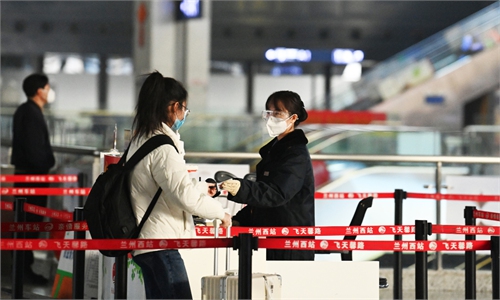China no longer reports asymptomatic COVID cases; cities launch mini apps to upload antigen self-test results

The photo taken on December 13, 2022 shows people hang out at Nanjing Road in Shanghai. Photo: VCG
Starting from Wednesday, China no longer reports the number of asymptomatic COVID-19 cases, China's national health commission announced on Wednesday, saying that many experiencing symptom-free infections are no longer taking nucleic acid tests, making it difficult to provide a precise figure.
Experts explained why there has been a downward trend in daily reported new COVID-19 cases. "After the further optimization of anti-COVID measures, city-wide nucleic acid testing is no longer conducted and people can take a test at their will, leading to a general decline in testing numbers and of cases screened out from the test," said Li Qun, director of the Emergency Center of Chinese Center for Disease Control and Prevention.
Li said the number of cases reported by hospitals had also dropped because many cases with no or mild symptoms, especially those who were identified as positive through rapid antigen self-testing, are choosing to stay at home rather than report to a hospital.
Before the national health commission stopped reporting the number of silent carriers, central China's Hubei Province on Tuesday launched a mini app for the public to update their antigen self-test results, saying that the negative antigen test results can hold the same validity as a nucleic acid test.
"When the mini app indicates an individual has a 'negative result of nucleic acid or antigen test,' they will not be required to provide proof of a negative nucleic acid test result," the notice read.
For future monitoring and reporting of the spread of the virus, Li said that outside cases in hospitals, monitoring of possible cluster infections in nursing homes, mental health facilities, welfare agencies and schools remains important.



